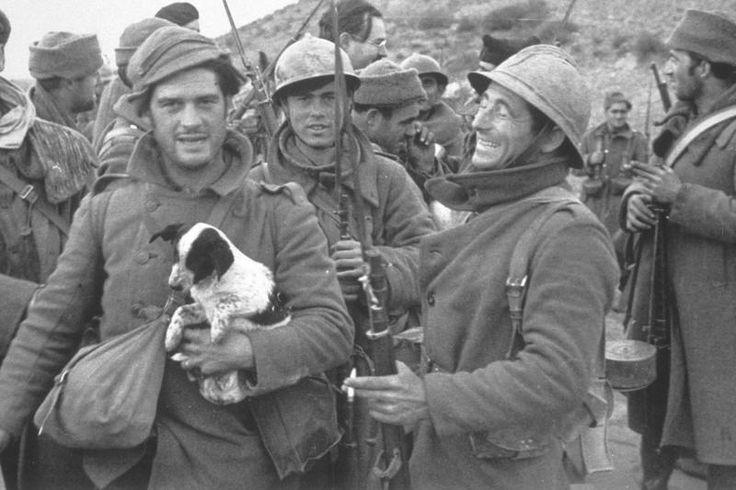Internationalism during the Spanish Civil War
[ad_1]
The International Brigades: Fascism, Freedom and the Spanish Civil War
by Giles Tremlett
London, Bloomsbury Publishing,
2020, 720pp
“We will not forget you,” promised the famous Spanish communist known as La Pasionaria, addressing the surviving International Brigades as they left Barcelona in October 1938, the last of the 35,000 volunteers who had fought for the defense of the Spanish republic against the nationalist forces of Francisco Franco since his uprising against the government of the center-left Popular Front in July 1936.
In the International brigades: fascism, freedom and the Spanish civil war, Spanish journalist and historian Giles Tremlett provides the most comprehensive history of the International Brigades, formed of men and women who came from all over the world to fight against Francoist forces backed by the Nazis and Italian fascists in what was considered a prelude to the Second World. War.
From the start, the forces of the Spanish Republic were hampered by the refusal of major Western powers such as Britain, France and the United States to help and set up a non-intervention committee. However, Nazi Germany and the Fascists blatantly ignored any non-intervention agreement and provided troops, weapons and economic aid to Franco’s forces in order to secure their victory.
The only two countries that sent aid to the Spanish Republic were Mexico and the Soviet Union, but it was the Stalinist-led Communist International (CI) that played a crucial role in establishing International Brigades with the French Communist Party (PCF) playing a crucial role. to facilitate the arrival of international brigades in Spain.
From the Battle of Madrid in November 1936 to the Battle of the Ebro in July-November 1938, international brigades were often sent into combat with very basic training and poor equipment against numerically superior nationalist forces sustained to the end. by Nazi Germany and Fascist Italy. , battles in which the brigadiers fought bravely but suffered appalling losses.
The experience of the English speaking battalions of the XV Brigades on February 12, 1937, at the Battle of Jarama Valley, when 630 British and Irish volunteers received little training and were thrown into action against a numerically superior force. After three days only 80 men survived, however the International Brigades were able to overcome these difficulties to achieve a Republican victory.
Among those who fought and supported the Spanish Republic were authors like Ernest Hemingway and George Orwell as well as numerous photographers, artists and politicians as well as working class men from all over the world (65 countries in total), half of whom Communists fighting alongside socialists, anarchists, liberals, democrats, people of all faiths and none, even a few politically agnostic conservatives and adventurers, all united under the anti-fascist banner.
Many of the brigadiers were already refugees who had fled persecution, poverty, unemployment and degradation, thousands of them French, Polish, German and Italian. The Italian Garibaldi Battalion played a crucial role in the defeat of Mussolini’s fascist forces at the Battle of Guadalajara in March 1937.
Tremlett does not hesitate to show the difficulties faced by the International Brigades and the Spanish Republic thanks to internal divisions such as the role played by Stalin’s NKVD and the Stalinist Communist Parties in crushing other left rivals with a entire chapter devoted to the repression of the anarchist left and the surveillance of George Orwell in May 1937.
We find there the story of soldiers like Oliver Law, the first black soldier to command white troops in American history, killed in Brunete in July 1937, the three Jewish tailors of Stepney who had “arrived by bicycle”. The behavior of volunteers ranges from heroic and self-sacrificing to cowardly, brutal and sadistic.
From 1937 to 1938, the international brigades fought in the battles of Brunete, Belchite, Teruel and Ebro, often making initial gains at great expense, but unable to hold on to those gains against nationalist forces backed by fascist Italy and the Nazi Germany while the Western powers allowed Republican Spain to be crushed.
In October 1938, the International Brigades were withdrawn from Spain in the hope that the German and Italian Allies of the Nationalists would withdraw their troops and that Western democracies such as France, Britain and the United States would end their arms embargo against the Republic. However, at the same time, France and Britain signed the Munich Agreement with Nazi Germany showing their commitment to the policy of appeasement.
By April 1, 1939, Franco’s nationalist forces had won the war and set up a repressive regime that remained in power until Franco’s death in 1975, surviving for 30 years the defeat of Nazi Germany and Fascist Italy, the partisans of the republic being imprisoned. , torture and executions with around 250,000 deaths.
For the international brigadiers, who suffered around 25,000 deaths during the war, their fate was varied, with those who returned to Britain and the United States often being suspected of having fought in the international brigades, often seeing themselves refusing promotion during WWII and being labeled as “Premature Antifascists” in the 1940s and 1950s. The plight of brigadiers in authoritarian countries was often worse, many dying in Nazi concentration camps, but continuing their struggle against fascism .
In 1996, the Spanish government finally kept its promise to the surviving international brigadiers by granting citizenship to the 600 surviving combatants and in 2020 approved the “democratic memory†law, which would grant citizenship to the descendants of these same volunteers. “It is high time that we said to these heroes and heroines of democracy: thank you for coming,†said Deputy Prime Minister Pablo Iglesias.
Tremlett The International Brigades pays homage to the imperfect but heroic men and women who fought against fascism, often at the cost of their lives and ridicules the idea that anyone can be a “premature anti-fascistâ€, especially as a result of COVID-19 and of the climate crisis the far right is on the rise again and must be tackled.
[ad_2]

